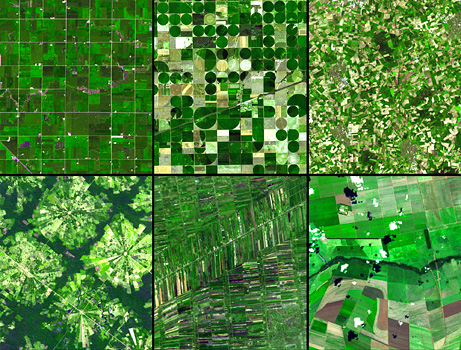
How many botanic gardens get such vast quantities of Google love? Or a birthday visit from the Queen of England? Kudos to Kew.
Agricultural Biodiversity Weblog
Agrobiodiversity is crops, livestock, foodways, microbes, pollinators, wild relatives …

How many botanic gardens get such vast quantities of Google love? Or a birthday visit from the Queen of England? Kudos to Kew.
An email alert from the good folks at Botanical Gardens Conservation International (BCGI) tells me they have spruced up their website. And the website in turns reminds me that May 18th is Plant Conservation Day, and we should probably do something about that here.
But the main reason for the alert is to draw our attention to two online databases: PlantSearch and GardenSearch.
PlantSearch enables users to locate rare or threatened plant species in cultivation around the world. This database is compiled from lists of living collections submitted to BGCI by the world’s botanic gardens. The database presently includes over 575,000 records representing almost 180,000 taxa from 692 gardens.
And you can find a garden anywhere in the world using GardenSearch, with over 2658 records. We’re working on an interactive botanic garden mapping tool too…
There’s a filter for crop wild relatives. Seems to me the botanical gardens community may be a bit further down the road out of database hell than the world’s genebanks.
I’ve always adopted a somewhat disdainful approach to those “fruit or vegetable” arguments that occasionally beset the tomato (and other things). Different realms of discourse, obviously. But no! It made a difference, back in 1893, when differential tariffs were bunged on fruits and vegetables. In the US, imported vegetables were taxed. Fruits were not. The Nix family sued Edward L. Hedden, Collector of the Port of New York, for taxes paid under protest — and lost.
In Nix v. Hedden the Supreme Court, after hearing readings from several dictionaries, opined that:
“The passages cited from the dictionaries define the word ‘fruit’ as the seed of plants, or that part of plants which contains the seed, and especially the juicy, pulpy products of certain plants, covering and containing the seed. These definitions have no tendency to show that tomatoes are ‘fruit,’ as distinguished from ‘vegetables,’ in common speech, or within the meaning of the tariff act.”
Useful ammo.

Like patchwork quilts, satellite views of farming patterns around the world form the above montage of images taken by the Terra satellite.
At top-left, a regular grid pattern suggests that agriculture was shaped by 19th-century surveying in Minnesota. Meanwhile, center-pivot irrigation in Kansas is responsible for the circles visible in the second image. A well in the middle of each field serves as a pivot point for wheeled, spraying watering machines.
In the top-right image of northwest Germany, small and disorganized fields can be traced back to the less-planned farming of the Middle Ages.
Curious pie-shaped fields in the lower-left image are the result of a planned settlement near Santa Cruz, Bolivia. At the center of each field is a village, while a buffer of rain forest separates each community.
In Thailand, at bottom-center, rice paddies just outside Bangkok form skinny slices. The purple fields are flooded, a normal part of rice’s life cycle.
At bottom-right, Brazil’s woodland-savanna cerrado contains massive farms, a by-product of the flat land’s inexpensive price.
Many thanks, NASA and National Geographic.